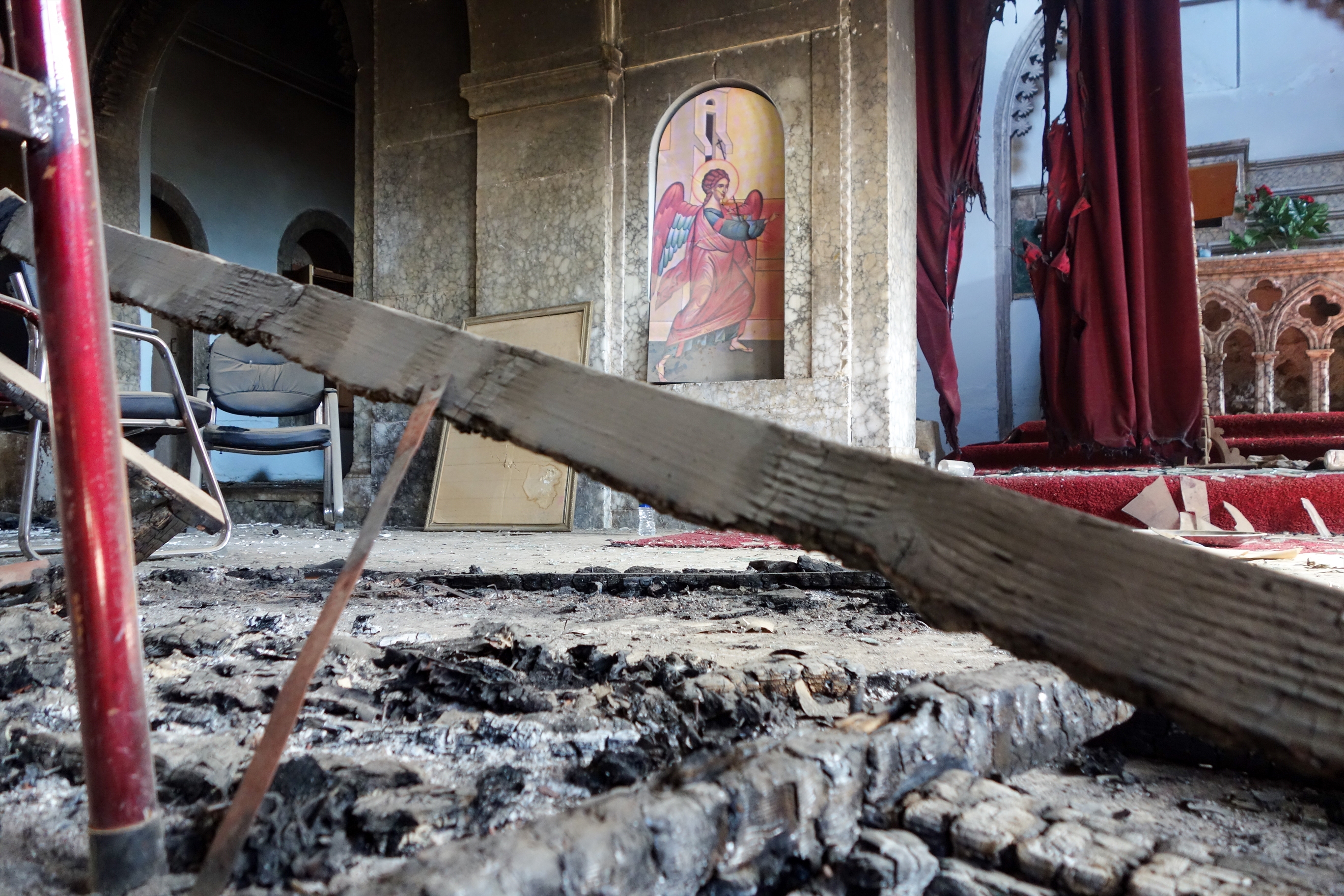Netherlands joins UN Security Council to shine light on IS genocide
Also see welcome US help for victims of genocide – and cotrast with Europe’s response:

The Netherlands has just joined the UN Security Council as a temporary member for a year. Ten days before, its Foreign Minister, Halbe Zijlstra, published a letter explaining the Dutch government’s response on the use by politicians of the term “genocide”.
The Dutch Parliament had had several debates on the “genocide” committed by members of the Islamic State group (IS), and came to a consensus that it was not for politicians but for the international judicial system to make such a determination.
The Dutch government’s response – the main points of which can be viewed at the bottom of the article – followed a joint legal opinion from the Advisory Committee on International Law Issues (CAVV) and the External Adjudication Adviser (EVA), which it had requested at the end of 2016.
“The Dutch government must be commended for its work on this topic. Hopefully those promises are translated into action and will be visible over the next year.”
The Dutch government supported this legal opinion, and confirmed its reluctance to use the word “genocide” where such a determination had not been previously made by an international court or UN body.
However, concerning the atrocities perpetrated by IS against Christians and Yazidis, the Dutch government confirmed that it “is the opinion that sufficient facts have been established to judge that [IS] is most likely guilty of genocide and crimes against humanity”. It added that the obligations under the 1948 UN Convention on Prevention and Punishment of the Crime of Genocide apply to IS’s atrocities.
This declaration is late, in comparison with other actors. The opinion published by the Dutch government, relying on the joint legal opinion of CAVV and EVA, clarifies the approach to be taken by government and parliamentary officials concerning mass atrocities that may amount to genocide.
Additionally, the Dutch government indicated in its letter the possible direction of work, including: referral of the situation in Syria to the ICC; supporting the work of the International, Impartial and Independent Mechanism, a new mechanism established by the UN General Assembly resolution to collect evidence of atrocities in Syria; and assisting the Investigative Team, a new mechanism established by the UN Security Council to collect evidence of IS atrocities in Iraq.
The Dutch government mentioned that it would further advocate focussing on atrocities perpetrated by other actors in addition to IS. Concerning Iraq, this position has been abandoned by other states for the sake of achieving consensus on the issue of IS.
But the Dutch government emphasised that the atrocities perpetrated by other parties must not be neglected and forgotten.
Analysis by Ewelina Ochab*

The Dutch government must be commended for its work on this topic. Hopefully those promises are translated into action and will be visible over the next year.
It should also be emphasised that apart from the commendable joint opinion of the CAVV and EVA, the Dutch government has had great assistance on the topic from MP Pieter Omtzigt, who represents the Netherlands at the Parliamentary Assembly of the Council of Europe and became a rapporteur on bringing IS to justice in late 2016.
His mandate included preparing a report outlining the options to bring IS to justice, and a resolution proposing recommendations to member states to the Council of Europe. The report and the resolution were adopted by the EU in late 2017.
Omtzigt will continue to hold his mandate for another year to follow up on the recommendations made in the EU resolution, as he looks to ensure the Dutch government makes a firm stance at the UN Security Council.
He has said he wants to ensure IS militants are prosecuted for their involvement and complicity through an international or hybrid tribunal (a domestic court with significant support of international expert and judges).
The UK recently claimed that it was not “crucial” to make such a determination of genocide, and that it has fulfilled its international obligations by working with the Iraqi government on UN Security Council Resolution 2379, establishing the Investigative Team to collect the evidence of IS atrocities in Iraq, and has been providing humanitarian assistance. However, there is more to the story.
Indeed, the determination of genocide should not be crucial to trigger the obligations under the 1948 UN Convention on Prevention and Punishment of the Crime of Genocide; historically, however, this has been done first after the use of the word “genocide”.
The UK was the leading force behind the UN Security Council Resolution 2379 that passed successfully on 21 September 2017. However, the resolution proposes that Iraqi courts will deal with prosecutions of the perpetrators. The question is whether Iraqi courts can do so.
British peer David Alton questioned the UK government on what checks it had done before proposing, by way of Resolution 2379, Iraqi courts prosecute IS militants. The UK government responded that it was currently considering the issue, namely after the resolution was adopted and not in preparation of the resolution, to allow it to propose the best solution for bringing IS to justice.
If, in fact, Iraqi courts do not have the capacity, it means that an international or a hybrid tribunal will need to be established, as proposed by Omtzigt. Furthermore, the UK has failed to prosecute returning IS fighters. According to the information submitted by the UK to the Council of Europe, as of early 2017 only 101 individuals connected with IS atrocities have been convicted, which may be just the tip of the iceberg, considering that 425 are said to have returned to the UK.
The UK has been actively supporting the work of the Global Coalition against IS, a coalition of 74 countries with the aim to tackle IS on all fronts. However, at the same time, the assistance provided to the victims of the IS genocide is concerning. The UK government confirmed that it is funding 171 projects in the Christian areas affected by IS atrocities and 80 projects in the Yazidi areas. While this may sound reassuring, the extent, impact, and benefit of these projects is unclear. I attempted to obtain this information by way of Freedom of Information request but have not received word back yet.
However, as indicated in the letter from the Dutch government, the determination of genocide is a vital step towards the fulfilment of the obligations to prevent and punish.
*Ewelina Ochab is a human-rights advocate and author of ‘Never Again: Legal Responses to a Broken Promise in the Middle East’

